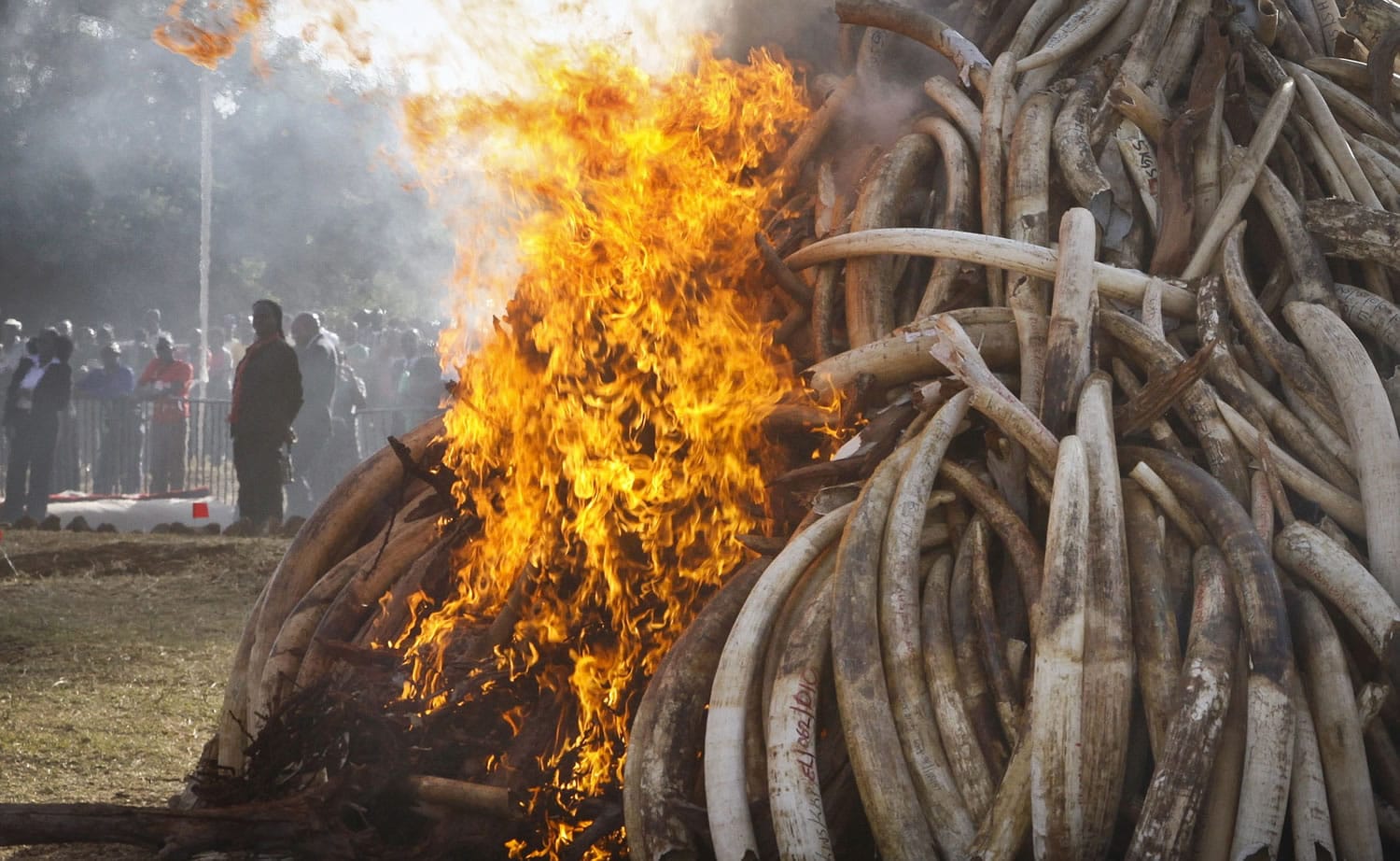JOHANNESBURG — Conservationists hail it as a possible game-changer in the struggle to curb the slaughter of elephants: an unexpected pledge by a senior Chinese official to stop the ivory trade in a country whose vast, increasingly affluent consumer market drives elephant poaching across Africa.
Now they are waiting in suspense for China to outline how and when it would ban an industry that criminal syndicates use as cover for their illicit business in tusks.
The ban could happen in 2017 when a legal stockpile of ivory in China is possibly depleted, predicted Zhou Fei, head of the China office of TRAFFIC, a wildlife trade monitoring organization. He said he is encouraged by the political will of China’s top leadership to combat poaching that, by some estimates, has killed more than 100,000 African elephants in the past several years and prompted governments to publicly destroy confiscated ivory in major cities, including New York City last week.
The May 29 comment by Zhao Shucong, head of China’s State Forestry Administration, came at a Beijing event in which 1,455 pounds of ivory were crushed, rendering tusks, carved statues and other ornaments useless for sale.



